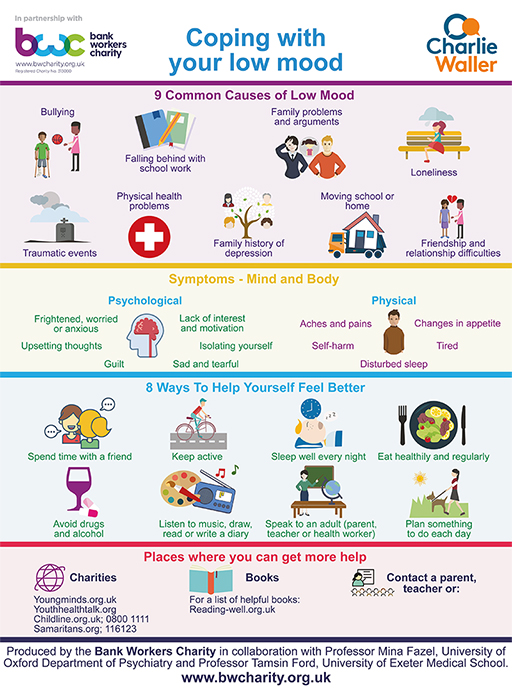Depression and low mood
It is worth noting that symptoms of depression can be experienced without that necessarily leading to mental illness. Some people may experience periods of depression but return quickly to the top end of the mental health continuum (see Figure 1 and Activity 2), without long-lasting issues, by means of, for example, coping strategies, or peer or family support.
However, if individual factors and/or circumstances exceed an individual’s coping strategies or support systems, for example due to being particularly vulnerable and/or externally triggered, this may lead to significant low mood with longer lasting effects, or mild, moderate or severe depression (American Psychiatric Association, 2013). By accessing support and/or making use of available treatment options, it is possible to recover from, or learn to live with, depression in a comparable way to experiencing some physical health conditions.
Figure 3 summarises some symptoms of depression and low mood, alongside suggestions for coping mechanisms. While this does not replace clinical support when needed, it has been designed to be used in education settings.

